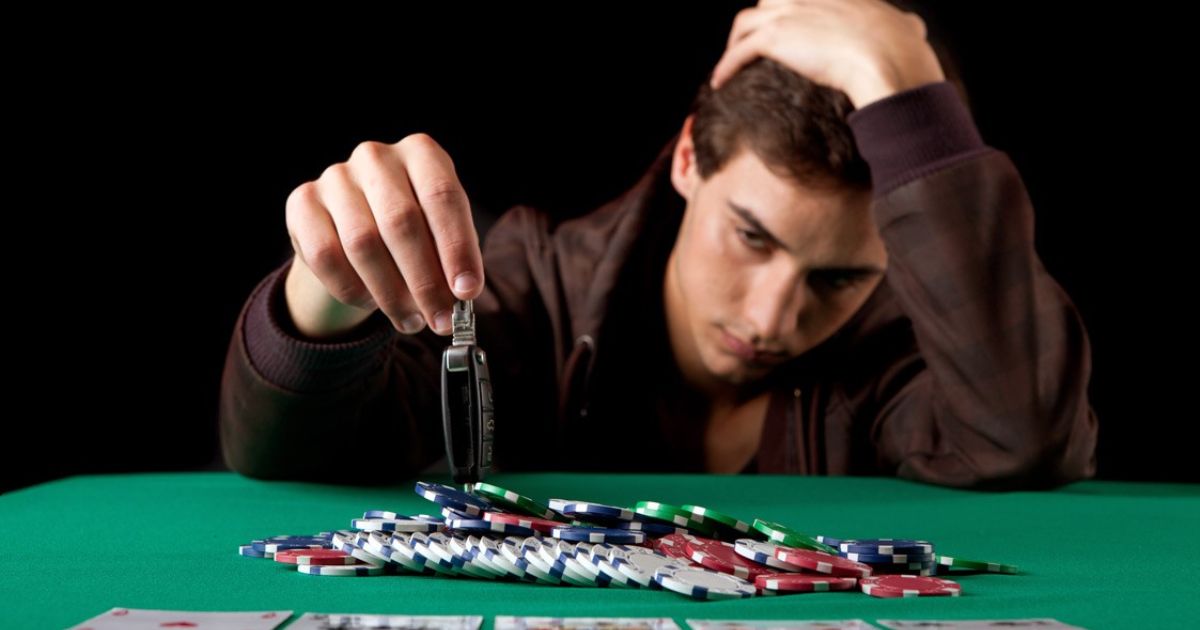In a recent revelation, startling statistics have emerged shedding light on the risky behaviors of young adults engaged in gambling activities.
According to new research commissioned by GambleAware and conducted by Ipsos, nearly half of the gamblers aged 18 to 24 admitted to wagering more than they could afford to lose.
The study, which surveyed young adults who had gambled in the past year, reported that 42% of them took financial risks while gambling, and an alarming 36% resorted to borrowing money or selling possessions to fuel their bets.
The Concerning Reality: Guilt, Mental Health, and Financial Risks
What’s even more concerning is the emotional toll associated with these gambling habits.
A majority of the surveyed gamblers in this age group expressed feelings of guilt about their behavior.
Shockingly, 39% admitted to experiencing mental health issues linked to their gambling activities in the past year.
This worrisome trend underscores the urgent need for intervention and support for young individuals caught in the throes of gambling addiction.
The Impact and Decline: Mixed Signals in Gambling Trends
While recent reports from the Gambling Commission suggested a decline in young adult gambling activities—with a decrease from 35.8% to 28.9% in those aged 16 to 24 gambling in the past month compared to 2019—the latest research paints a contrasting picture.
Despite a drop in overall participation, the gravity of the situation among the remaining young gamblers has raised significant concerns.
The worries surrounding the minority still engaged in gambling indicate a deeper issue that requires immediate attention.
Proposed Reforms and the Role of GambleAware
The research findings have fueled discussions around the proposed Gambling Reform Act (GRA), which initially aimed to introduce safeguards for gamblers under 25, including limits on stakes in online casinos.
However, despite ongoing concerns, the GRA was conspicuously absent from recent governmental discourse, raising questions about the prioritization of measures to protect vulnerable demographics in the gambling landscape.
GambleAware, an independent charity focused on addressing gambling harm, has been at the forefront of advocating for change.
CEO Zoë Osmond has unequivocally labeled gambling as a severe public health issue. The organization’s efforts aim to bolster public awareness and understanding of the detrimental effects of gambling, emphasizing the importance of open communication.
Advocating for Change: Communication and Language Shifts
GambleAware’s approach advocates a shift in communication strategies, urging individuals affected by gambling harm to share their experiences openly.
Shockingly, the survey revealed that a staggering 64% of respondents who faced gambling-related issues had never discussed their concerns with anyone.
This lack of dialogue underscores the need for creating safe spaces for individuals to seek support and guidance.
Furthermore, GambleAware stresses the significance of altering language concerning gambling harm.
They propose refraining from terms such as ‘addict’ or ‘binge’ to prevent stigmatization and instead encourage a collective responsibility in finding solutions to tackle gambling-related problems.
Osmond’s Call to Action: Opening Dialogues and Seeking Support
Zoë Osmond underscored the difficulties associated with recognizing gambling addiction when observed externally, highlighting the pivotal significance of easily accessible support services.
She emphasized the necessity for individuals impacted by the adverse effects of gambling to step forward proactively, initiating discussions regarding their challenges as early as feasible in their journey towards recovery.
The Road Ahead: Urgent Need for Collective Action
As these troubling statistics emerge, they act as a poignant reminder, emphasizing the immediate necessity for implementing thorough strategies aimed at tackling the concerning gambling-related problems prevalent among young adults.
Through advocating for substantial reforms, fostering heightened conversation, and promoting a change in how society views gambling, entities such as GambleAware are steadfastly dedicated to lessening the detrimental impacts of gambling and extending crucial assistance to those seeking support.



